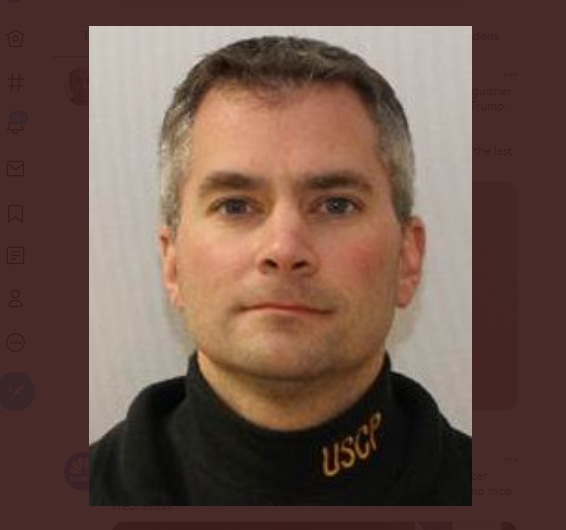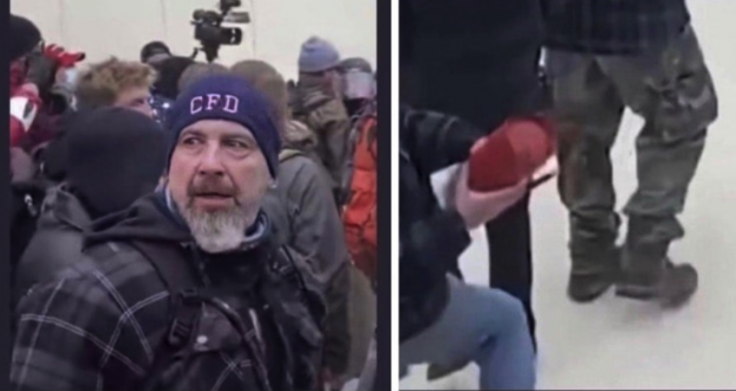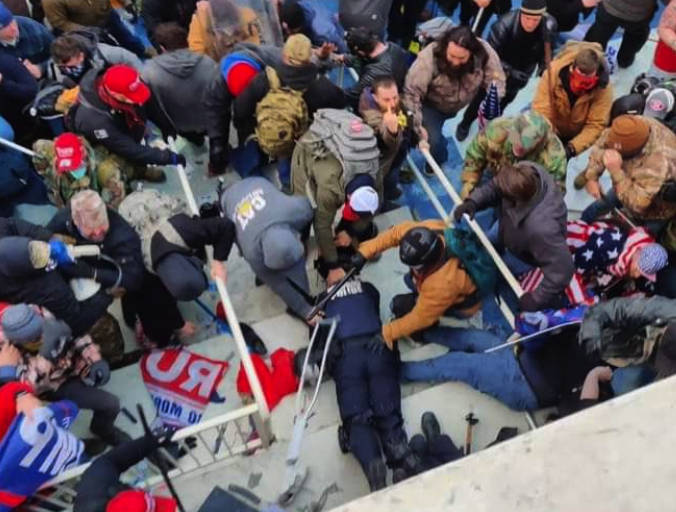Capitol Police Officer Brian Sicknick suffered strokes and died of natural causes one day after responding to the January 6 insurrection at the US Capitol, and the death was not directly caused by the incident, DC medical examiner ruled on Monday. Sicknick was given full state honors after he was treated as a martyr in the wake of the January riots.
The District of Columbia's chief medical examiner, Francisco Diaz, didn't note any evidence that Sicknick had an allergic reaction to chemical spray or list any internal or external injuries, according to The Washington Post. However, Diaz told the outlet that "all that transpired" on January 6 "played a role in his condition."
Martyr or Not?

Sicknick died after suffering two strokes following the Capitol riots, Diaz announced Monday. Diaz said that the strokes weren't related to any injuries he might have sustained during the riots. Also, the autopsy found no evidence of an allergic reaction to chemicals, nor of internal or external injuries.
Due to privacy laws, Diaz is unable to say whether the officer had any pre-existing medical conditions. However, the riots played a role in Sicknick's death but not directly. "All that transpired played a role in his condition," Diaz told the Washington Post.
The cop, 42, had been hailed a hero, with President Biden ordering an urn with his ashes to lie in honor in the Capitol Rotunda, the country's top tribute to a late private citizen. At that time, it was widely assumed that the officer had died from injuries that he sustained during the January 6 attack. Sicknick he died the next day.
Sicknick also became one of the rare few in the country's history to receive the honor to lay in state at Capitol Rotunda. Since 1852, only about three dozen Americans have had this honor, including Abraham Lincoln, John F Kennedy and Ronald Reagan. The most recent politician to lay in state in the Capitol Rotunda was US Rep. John Lewis, the civil rights leader whose casket was place there last July.
Twist in the Tale

The category of 'laying in honor' was created in 1998 in order to recognize distinguished Americans outside of the political realm: Sicknick was only the fifth American to receive the honor reserved for people who aren't political leaders.
That said, the ruling now changes the entire course of the investigation and charges. Speculation over Sicknick's death was the source of widespread disinformation after reports claimed that protesters had bludgeoned him with a fire extinguisher, a claim that was later dismissed by investigators.
Sicknick had collapsed after he returned to his office following the protests January 6 and died about eight hours later. However, Capitol Police pushed the narrative that Sicknick was killed by injuries sustained during the riots.
Sicknick, a New Jersey native, died of acute brainstem and cerebellar infarcts due to acute basilar artery thrombosis, Diaz ruled. That means he suffered two devastating strokes in his brain stem resulting in a clot in an artery.

His manner of death thus has been ruled 'natural', which is used when a disease alone causes the death. Diaz's office clarified that the manner of death is not considered natural only if it is hastened by an injury.
The ruling all but ensures that the Justice Department won't be able to pursue homicide charges in Sicknick's death. In March, two men — Julian Elie Khater, 32, of Pennsylvania, and George Pierre Tanios, 39, of West Virginia — were arrested and charged with assaulting Sicknick.
Sicknick had been sprayed with a chemical substance outside the US Capitol at around 2.20pm on the day of the riots. However, Diaz found no evidence that Sicknick suffered any adverse reactions to chemical irritants that he was sprayed with.
Sicknick's brother, Ken Sicknick, told ProPublica that the officer texted him on the night of the riots and said he had been 'pepper-sprayed' but was in 'good shape'. This further reinstates that Sicknick died of natural causes.









